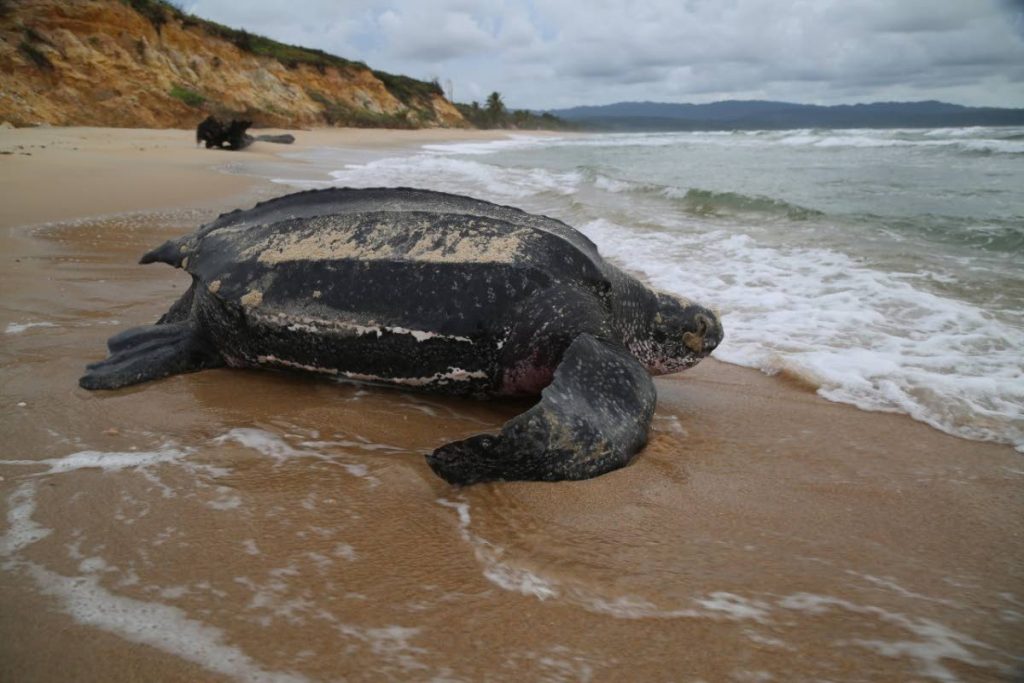Caricom stakeholders push for legally binding Caribbean Sea biodiversity agreement

Caricom stakeholders are calling for regional collaboration and strong stakeholder involvement in global efforts to ensure Caricom people get equitable access to and shared benefits from the ocean.
In a release, the Caribbean Natural Resources Institute (Canari) said it had launched an online GIS story map which explores what a new global treaty on the ocean would mean to Caribbean people.
It said, for more than a decade, there have been discussions on the need for an international agreement to protect biodiversity in areas outside of national territories, as current international law is inadequate. Caricom negotiators have called for development of a strong international, legally binding, agreement to conserve and sustainably use marine biodiversity in areas beyond national jurisdiction (the BBNJ Agreement).
The agreement is being drafted under the United Nations Convention on the Law of the Sea (UNCLOS). Negotiations have been ongoing since 2016 but were disrupted in 2020 by the covid19 global crisis.
Canari said more than 100 million people who live on or near the coasts around the Caribbean Sea, which is split into territorial waters, benefit from the ocean for their livelihoods, recreation, health, well-being, culture, and spirituality. A study by the World Bank put the economic value of the Caribbean Sea to the region at US$407 billion per year, including all its services and support to fishing, transport, trade, tourism, mining, waste disposal, energy, carbon sequestration and drug development. Globally, recent estimates suggest that the ocean contributes about three per cent of the global economy, or about US$1.5 trillion annually.
It said investing in protecting the ocean therefore makes economic sense and Caricom stakeholders called for development of a high seas biodiversity fund or other sustainable financing mechanism to ensure adequate funding for implementation of the BBNJ Agreement. It said stakeholders recognised that capacity building and technology transfer under the agreement would benefit many Caricom stakeholders, and recommended that capacity development should be targeted at the regional level via a regional roster of experts and regional centres of excellence to foster collaboration within the Caribbean. They also felt that Caricom experts should be included in the proposed scientific and technical body to ensure that the best available science on the region is used and shared.
Canari said Caricom stakeholders felt that decisions about designation of areas in the ocean for special protection and management of biodiversity, for example the Sargasso Sea adjacent to the Caribbean region, should involve stakeholders to facilitate knowledge sharing, build stakeholder awareness, enable benefit sharing, build partnerships for collective action, and reduce conflicts to increase compliance. Stakeholders also need to be involved in environmental impact assessments for activities in international waters, as these could negatively impact on national waters and coasts. Activities in national territories could also negatively impact on the shared ocean, which needs to be protected as the common heritage of humankind.
Co-Cchair of the Caricom BBNJ negotiating team, Ambassador Janine Felson from Belize, said, “Caricom stakeholders working in tourism, fisheries, shipping, marine scientific research and biodiversity conservation and coastal communities who depend on the sea for their livelihoods, have special interests, rights and responsibilities relevant to the BBNJ agreement. Having their perspectives and priorities, our negotiators will be better placed to make a convincing case for improved action to protect ocean biodiversity and benefit Caribbean people.”
For more information on the BBNJ agreement and CANARI’s interactive GIS Story Map, ‘The Ocean and Us: What a new global treaty means to the people of the Caribbean’, go to: https://canari.org/bbnj-consultations/.


Comments
"Caricom stakeholders push for legally binding Caribbean Sea biodiversity agreement"